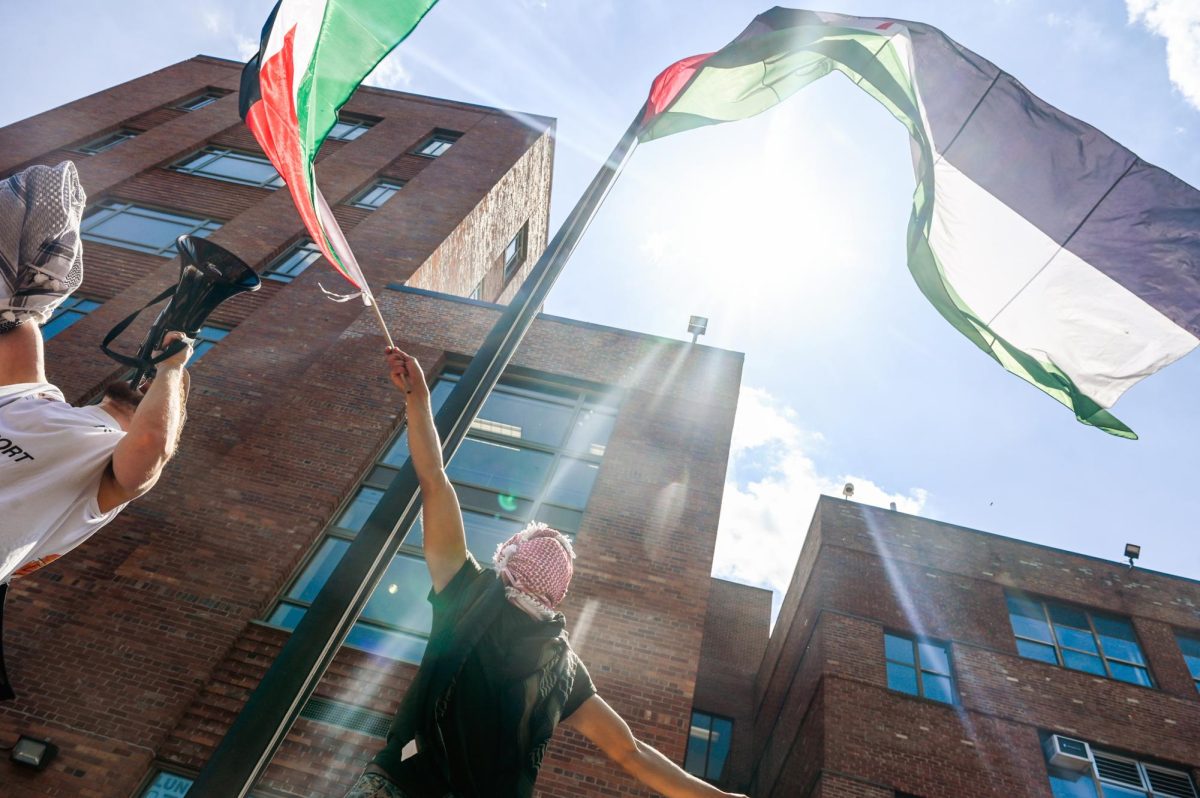Correction appended
For sophomore Samah Kabir, her residence hall is more than a place to sleep, study and unwind with friends – it is also her home, the only place where she can remove her hijab, a traditional Muslim head scarf, without betraying her values and religion.
Kabir, who is Muslim, is one of many female students who choose to live in Strong Hall, GW’s only all-female residence hall, for religious and cultural reasons. Whether coming from conservative households or religious backgrounds that prohibit male-female cohabitation before marriage, the building has helped to facilitate students who wish to maintain their particular lifestyle.
But a wrench has been thrown in the plans of many female students who choose to live in Strong Hall, after the University decided to turn the residence hall into sorority housing at the start of next year.
Strong will house two sororities, according to an e-mail circulated to the presidents of Greek-letter groups shortly before students left campus for the Thanksgiving holiday. The residence hall, located at 21st and G streets, was built in 1934 after Trustee Hattie M. Strong donated $200,000 specifically for a women’s residence hall.
Kabir said she and other Strong residents are resentful that the University decided to allow sororities to occupy the space. About 20 percent of students are involved in Greek-letter life.
“I know a lot of girls are already talking about how GW is giving more favor to sororities instead of catering to the general community,” she said. “It’s not even a cultural thing. This option of having an all-girls dorm is a great situation for people who want to live with just girls.”
Another Strong resident, United Arab Emirates native Yasmin Baker, said the fact that GW had an all-female residence hall was a major factor in her choice to come to the University. Without the housing option, Baker said she may have wound up at another university.
“My first year, I was obligated by my family to live in Strong,” Baker said. “If this had happened a year ago, I probably would have not come to GW at all. It’s a big deal to send a girl halfway around the world by herself, when college might not even be an option.”
Sophomore Zahra Khan was born in the U.S. but grew up mainly in Saudi Arabia and said she and other students who come from religiously conservative backgrounds often find living in same-sex residence halls to be an easier transition to college life.
Women “want to be in an environment that is not as foreign,” Khan said. “It is a reminder of home.”
Khan agreed with Baker, her roommate, saying her family ruled out colleges that did not offer all-female housing.
University spokeswoman Michelle Sherrard said the University will provide an all-female option next year for students who prefer same-sex living, but the capacity and location of such a hall has not yet been determined.
Even if GW is able to offer suitable all-female housing, residents fear for the loss of the unique atmosphere and community of Strong.
“In terms of comfort, Strong is a safe haven,” Baker said. “I’m sad to see that this is happening.”
South Korean student MiJung Kim, a sophomore, said she requested to live in Strong after feeling uneasy living in a co-ed dorm on the Mount Vernon campus.
“The [South Korean] culture makes you feel uncomfortable living with guys in the same building,” Kim said. “Living on Mount Vernon was very uncomfortable for me.”
Kim said she would consider living off campus to maintain her lifestyle and level of comfort.
“It’s not good. What are they going to do for those people who don’t want to live with guys in the same building?” she said. “It’s different for boys to be in a dorm building. I may have to find an apartment.”
Michelle Rattinger contributed to this report.
Dec. 4, 2009
The Hatchet originally reported that Yasmin Baker was a native of Bangladesh. She is actually from the United Arab Emirates.






